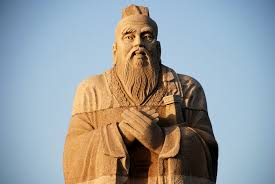
Confucianism: An Exploration of Virtue and Harmony
Introduction
Confucianism, a system of philosophical and ethical teachings founded by Confucius, has profoundly influenced Chinese culture and other East Asian societies. Emphasizing moral integrity, social harmony, and humaneness, Confucianism offers guidance on personal conduct, governance, and the cultivation of virtue. This article delves into the origins, key concepts, and enduring impact of Confucianism, providing a comprehensive understanding of this influential philosophy.
Origins and Historical Context
Confucianism originated in China during the Spring and Autumn period (approx. 771 to 476 BC), a time of social and political turmoil. Confucius, known as Kong Fuzi or Master Kong, sought to restore social order and harmony through moral education and virtuous leadership. His teachings were later compiled by his disciples in texts such as the "Analects," which have since become central to Confucian thought.
Over centuries, Confucianism evolved and was institutionalized as the state philosophy during various Chinese dynasties, significantly shaping Chinese civilization and influencing neighboring cultures in Korea, Japan, and Vietnam.
Key Concepts in Confucianism
Confucianism is grounded in several core principles that emphasize moral development and social harmony.
Ren (Humaneness): Ren represents kindness, compassion, and empathy towards others. It is the central virtue in Confucianism, guiding ethical behavior and interpersonal relationships.
Li (Ritual Propriety): Li encompasses the rituals, norms, and customs that structure social interactions and maintain societal harmony. Adhering to li fosters respect, order, and discipline.
Yi (Righteousness): Yi refers to moral righteousness and justice, emphasizing the importance of acting according to ethical principles rather than personal gain.
Xiao (Filial Piety): Xiao underscores the respect and devotion children owe to their parents and ancestors. It extends to loyalty and respect within broader social hierarchies.
Zhi (Wisdom): Zhi involves the application of knowledge and understanding in making moral decisions, reflecting the importance of education and self-cultivation in Confucian thought.
Influence and Criticism
Confucianism has deeply influenced various aspects of East Asian cultures, including their education systems, social structures, and political ideologies. It has shaped ethical norms, family values, and governance practices, promoting a society oriented towards harmony and moral integrity.
However, Confucianism has also faced criticism. Some argue that its emphasis on hierarchy and social conformity can stifle individuality and perpetuate authoritarianism. Additionally, the strong focus on filial piety and obedience may conflict with modern values of personal autonomy and equality.
Notable Philosophers and Works
Several key figures have contributed to the development and interpretation of Confucian thought:
Confucius: His teachings, collected in the "Analects," form the foundation of Confucian philosophy, emphasizing virtue, ethical conduct, and social harmony.
Mencius: A follower of Confucius, Mencius expanded on his teachings, advocating for the innate goodness of human nature and the role of benevolent governance.
Xunzi: Contrasting with Mencius, Xunzi argued that human nature is inherently selfish and requires strict moral education and societal regulations to cultivate virtue.
Conclusion
Confucianism remains a vital and influential philosophy, offering timeless insights into moral development, social harmony, and ethical leadership. Its principles continue to inspire individuals and societies striving for virtue and harmony. By embracing Confucian teachings, we can cultivate a more compassionate and just world.
Further Reading and External Links
- Confucius. The Analects. Archive.org
- Mencius. The Book of Mencius. Archive.org
- Xunzi. The Works of Xunzi. Archive.org
- Stanford Encyclopedia of Philosophy: Confucius
- Internet Encyclopedia of Philosophy: Confucius
- Encyclopedia Britannica: Confucius
This article aims to provide a broad yet detailed overview of Confucianism, encouraging further exploration and understanding of this profound philosophical perspective.